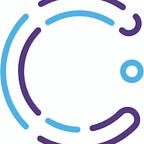As organizations continue to generate tons of information, the cost of searching for information can be very high. IDC data shows that the knowledge worker spends about 2.5 hours per day, or roughly 30% of the workday, searching for information. For an organization that employs 1,000 workers, with an average yearly salary of $80,000, the cost of unproductive search is pegged at $25 million per year.
This shows how important it is for businesses to have well-organized information management and retrieval systems. As any business owns different applications to manage their day-to-day activities, each of these tools must be equipped to manage the information effectively.
For instance, an organization may use up to 5 different applications to meet its communication goals. Since each of these tools generates huge amounts of data, having an effective indexing system is mandatory for not only decreasing the chances of misfiled information but also for speeding up the storage and retrieval of information. Companies usually achieve this through a third-party tool like SharePoint. But what if your communication tool itself can manage the information?
Yes. That’s why we created Clariti. It is an individual productivity tool that combines different channels of communications — Email, Chat, Document Storage, and Social Media. The tool provides automatic indexing (we call it ‘Threads’) for all communications that are taking place inside the system. Without threads, information is spread all over the system and it becomes extremely complicated and stressful when it comes to retrieval and reporting. In Clariti, all the “connected” communication history is displayed in an easy-to-navigate “overlay” view, which acts as a table of content for easy navigation
In this blog, we will tell you how Clariti handles information storage and retrieval by automatically tagging every communication that is taking place within the tool. When we try to manually tag the files, folders, emails, chat transcripts etc through a third-party tool, there are chances for more errors. The files can go into wrong folders and it may become difficult to locate the right folder when we have hundreds of folders.
But in Clariti, all your communications get stored automatically, without you having to make any extra effort. When you get an email from your colleague or client in your Outlook, you can only choose to reply or forward the mail to others. You cannot use Outlook for chatting as it is only a mail management system. But in Clariti, when you receive an email, you can immediately start chatting from the email and the recipient can understand the context that you are talking about — without you having to forward the email! Later, both the email and chat transcripts will be saved automatically in a thread.
Alternatively, the user can initiate a group chat with the same subject line instead of sending an email. This powerful feature prevents multiple emails. You can combine any number of items like email, chat, files, social feeds under one single related Thread. So, each context becomes a separate Thread. When you click a particular Thread, all information pertaining to that ‘work thread’ will be displayed in one single view. There is no need to refer to multiple applications to gather all information related to one particular context.
By simplifying the ability to search, retrieve, process and archive documents, Clariti makes you more organized, agile and productive. Our ultimate goal is to make any information available to the user in less than 10 seconds. Since 75% of the workforce will be millennial by 2020, they wouldn’t tolerate a tool that lacks quick search features.
Please take a moment to check Clariti out. It’s free. No strings attached.
